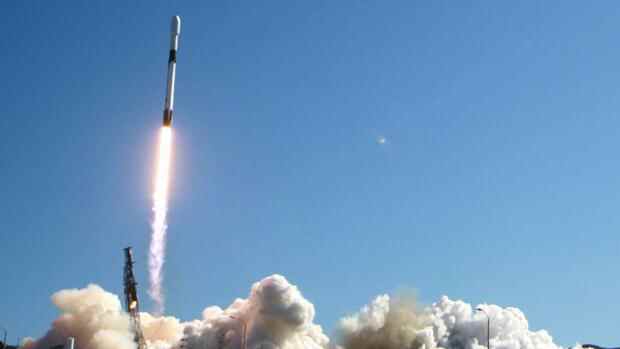Dusseldorf, Paris “Europe must take its destiny into its own hands and conquer new frontiers,” said Emmanuel Macron on Wednesday at the meeting of EU ministers responsible for space policy in Toulouse. “Without mastery of space, there is no technological sovereignty.”
New developments in space travel currently often come from private companies such as SpaceX and Blue Origin from the USA. European companies and the European Space Agency Esa are currently barely visible on the international market.
But the timing of the announcement and the functional specifications irritate the young space companies, so-called New Space companies, which are supposed to support the project to a large extent. “The way does not bode well,” says Walter Ballheimer, head of the Berlin satellite manufacturer Reflex.
Top jobs of the day
Find the best jobs now and
be notified by email.
Because the start-ups, which have joined forces in two consortia on behalf of the EU, will only present their plans for the satellite constellation in mid-2022. Internal Market Commissioner Breton goes public long before. “This is an unorthodox approach by the EU Commission,” says Matthias Wachter, space expert from the Federation of German Industries (BDI).
The suspicion of the New Space companies: Breton’s current proposal is based primarily on the ideas of a third – strongly French – consortium. This includes established space companies such as Airbus, Thales, Arianespace and OHB, which presented their plan weeks ago. They have a considerable head start because the EU and Breton initially only commissioned them to prepare an offer. Only after massive criticism from start-ups and the intervention of the German government did the EU change direction and also commissioned two New Space consortia. One of them is the “Unio” consortium, which includes twelve companies, including Isar Aerospace, Manaric and Reflex.
The EU Commission’s draft is extremely complex
The primary purpose of the satellite network is to ensure a fast Internet connection, especially in rural areas. For high bandwidth and fast transmission, the satellites are to be placed in low earth orbit. However, this constellation is technically demanding and expensive – the satellites burn up after three to five years and have to be replaced.
But Breton wants even more: The satellites should not only enable Internet connections, but also offer a particularly high level of security. This is the only way they can be used to accompany military actions or monitor borders and seas, as the EU proposal states. “The Internal Market Commissioner Thierry Breton wants a one-size-fits-all solution for the European satellite constellation,” says BDI expert Wachter.
Military technology makes the satellites heavier
But for military applications, the satellites would have to meet much higher security requirements. This could mean that two separate hardware systems would have to be installed in each satellite. “Security is important, but this is an artificial complication of the system that plays into the hands of the established companies,” says Daniel Metzler, head of rocket manufacturer Isar Aerospace.
Because the harder the satellites have to perform, the bigger and heavier they become. New providers such as Isar Aerospace might then no longer be able to send the satellites into orbit with their microlaunchers. It would be a “very big order” for the Munich company, as Metzler says. Rocket launches account for 30 to 50 percent of the cost of a satellite network.
On the other hand, the established carrier rocket company Arianespace could transport heavier satellites with the new Ariane 6 rocket. The French have been struggling with delays for years.
Ballheimer from the Berlin start-up Reflex fears that a European satellite Internet based on Breton’s specifications could be overloaded and not commercially competitive. “Then the orders from German companies go to SpaceX or other providers.”
Breton plans to finance the €6 billion project through a public-private partnership between the EU, the European Space Agency and private investors. The start-ups take a critical view of this. Previous space projects of this type, such as the Galileo navigation system or the Ariane 6 rocket, took much longer and were much more expensive than originally planned. “There is no competition,” says Ballheimer from Reflex.
Hoping for the market economy – and the German government
The proposal by the New Space consortium “Unio” envisages a purely market-based model. They want to set up the satellite constellation in private hands. The EU would be the anchor customer, would participate in the financing and in return receive benefits such as use of the satellites for a certain period of time. The American space agency Nasa is dealing with SpaceX and other new providers in a similar way.
The start-ups are now hoping for support from German politicians. Around 120 new space start-ups are active in Germany in this future-oriented industry. But: “When I read the coalition agreement, I was very disillusioned,” says Isar-Aerospace boss Metzler. “The new government has not yet recognized the importance of space travel.”
More: EU wants to challenge Elon Musk in space: Europe plans satellite internet
